Reducing waste at Council
Council is committed to the war on waste. We’ve established a Zero Waste Strategy to reduce waste throughout the Inner West, both in the community and within Council’s operations. You can view the strategy here:
For information on reducing waste at home go to:
Waste Avoidance and Recycling
We reduce waste in Council’s operations by:
- Reducing the generation of waste in the first place
- Reusing materials where we can
- Recycling or composting materials that can't be reused
Council also buys recycled products so that we encourage a strong market for used materials. Council wants to create a “circular economy” where waste is recognised as a resource.
Some examples of Council’s waste and “circular economy” projects follow.
Marrickville Library is an award-winning library and community space in the heart of the Inner West. It is not only beautiful – it is also sustainable.
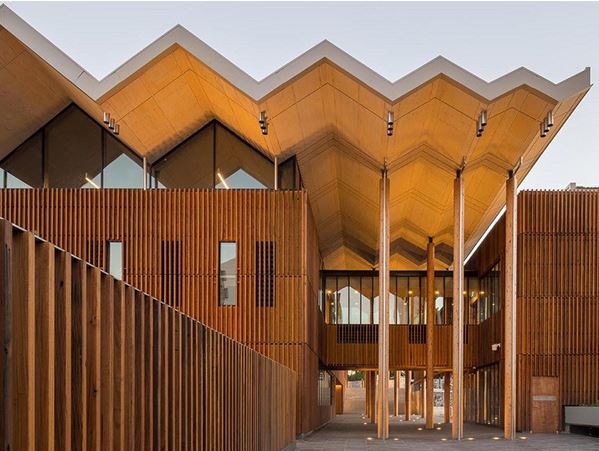
During design and building, Council and its construction partners worked hard to reuse materials and reduce construction waste.
This included preservation of the old Marrickville District Hospital building. This has been integrated into the new library, avoiding the waste associated with demolition.
The wooden floorboards from the old Marrickville District Hospital were preserved and restored during redevelopment, and now grace a section of the new Marrickville Library.
Some less valuable structures on the old hospital grounds were not suitable for preservation. However 27,000 bricks from these were cleaned and reused to form the new Library’s exposed brick walls shown below.
The Library uses timber throughout the façade and interiors – in fact there are 10 kilometres of timber throughout!
Timber on the internal balustrades, external battens and façade shading is recovered from demolition projects. For example, the Sportsmans Creek bridge in the Clarence Valley was built in 1911 from Blackbutt timber and was demolished in 2018 to allow heavy freight trucks to cross. It now lives on in the Marrickville Library. Keen observers might notice the old nail holes in the wood.
Council also sourced some new timber for the project, and carefully selected a Forest Stewardship Council certified forestry project in northern NSW as the supplier.
There are many other sustainable features at Marrickville Library and you can find out more by visiting the library and checking out the information boards.
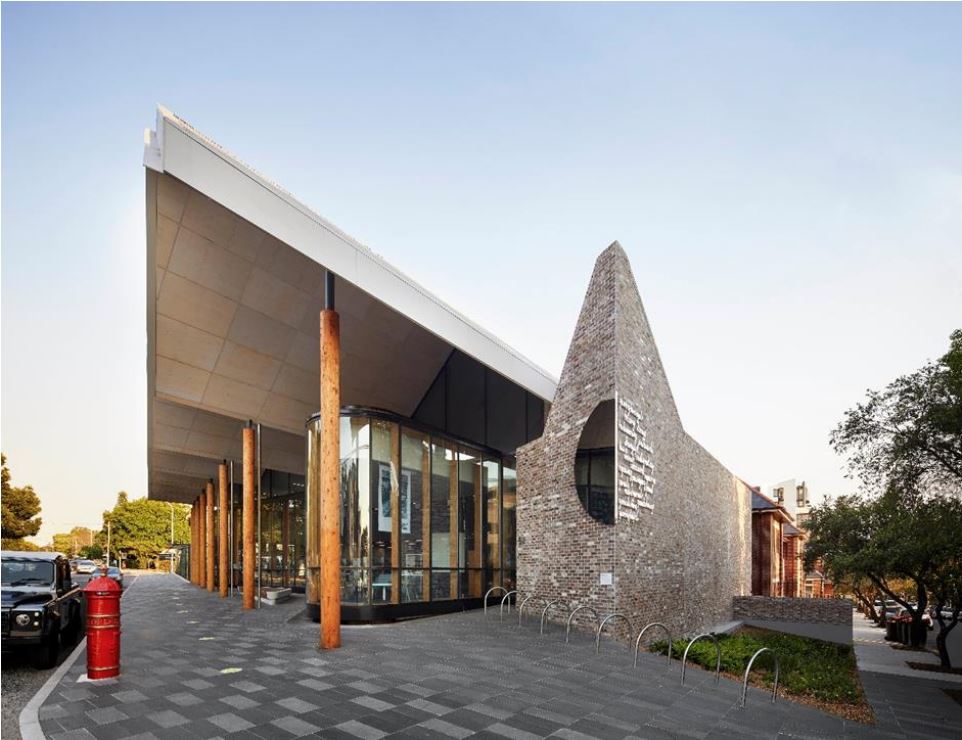
Council’s civil and capital works teams store and reuse materials whenever they can. This includes materials such as sandstone, sand, road base and heritage bricks. Sandstone slabs dug up during kerb and gutter works are a common example and are reused by Council wherever possible.
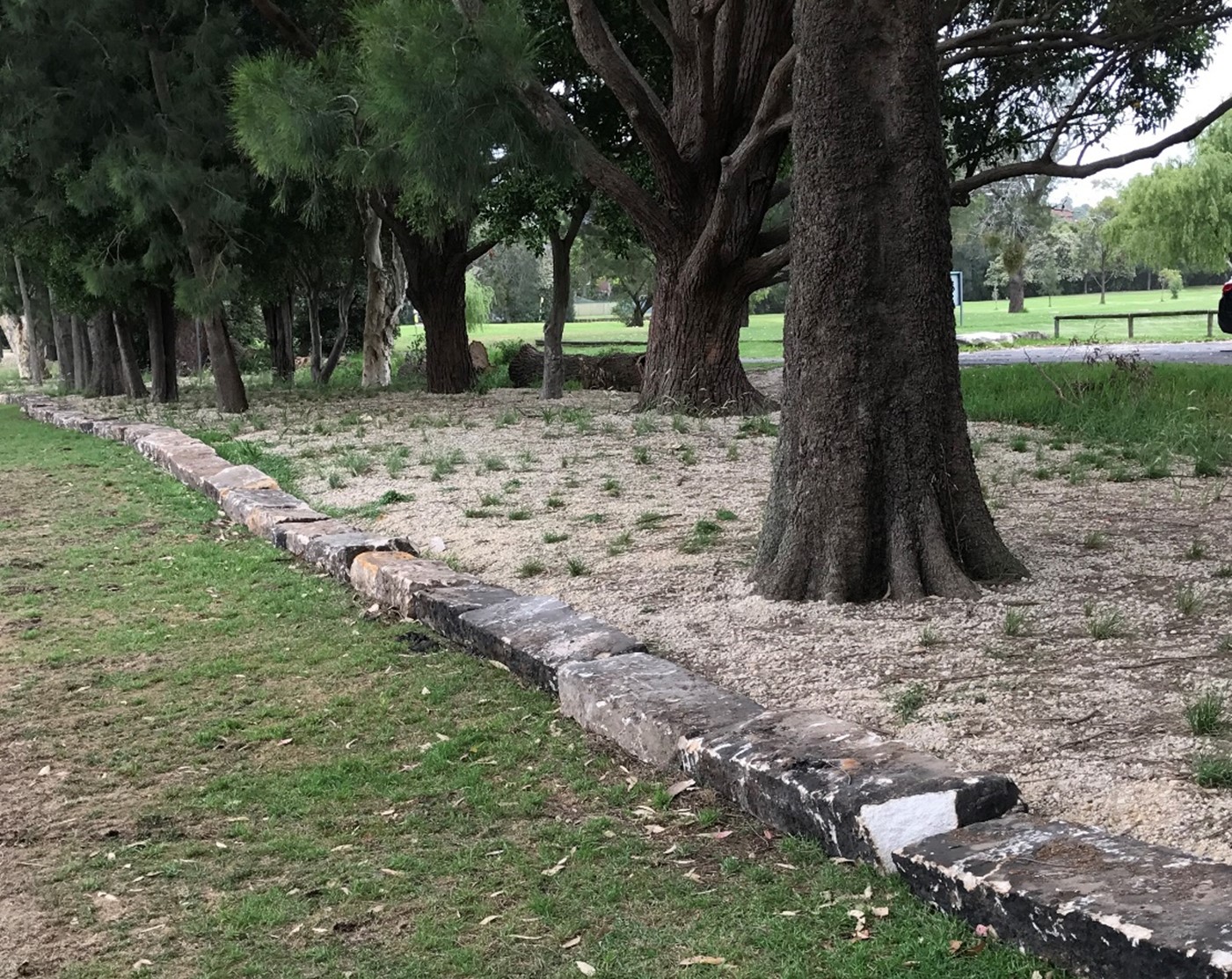
Reclaimed sandstone from Railway Avenue in Stanmore re-used as a boundary at HJ Mahoney Park in Marrickville
An example can be found at Dibble Avenue Waterhole, which is a hidden sanctuary for birds and frogs in Dulwich Hill.
The banks of the waterhole needed to be stabilised to prevent damage. Work was undertaken in 2020 and 2021.
A landscaped ring around the waterhole was created with over 200 sandstone blocks re-used from other Council projects. Smaller and broken blocks were used to make aquatic habitats and drainage channels. Old timber piers were re-used to landscape the new outflow pit.
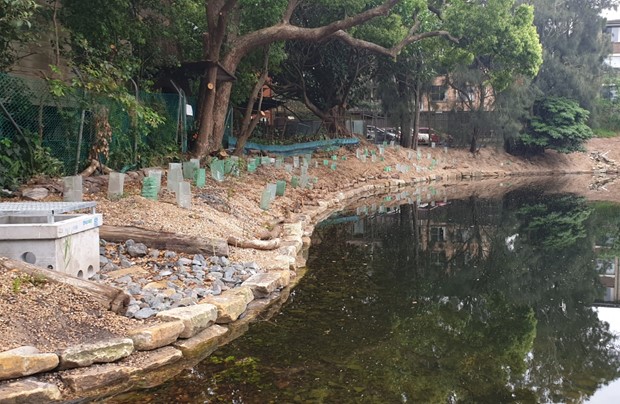
Reused timber pier stumps flank the new outflow pit at Dibble Pond
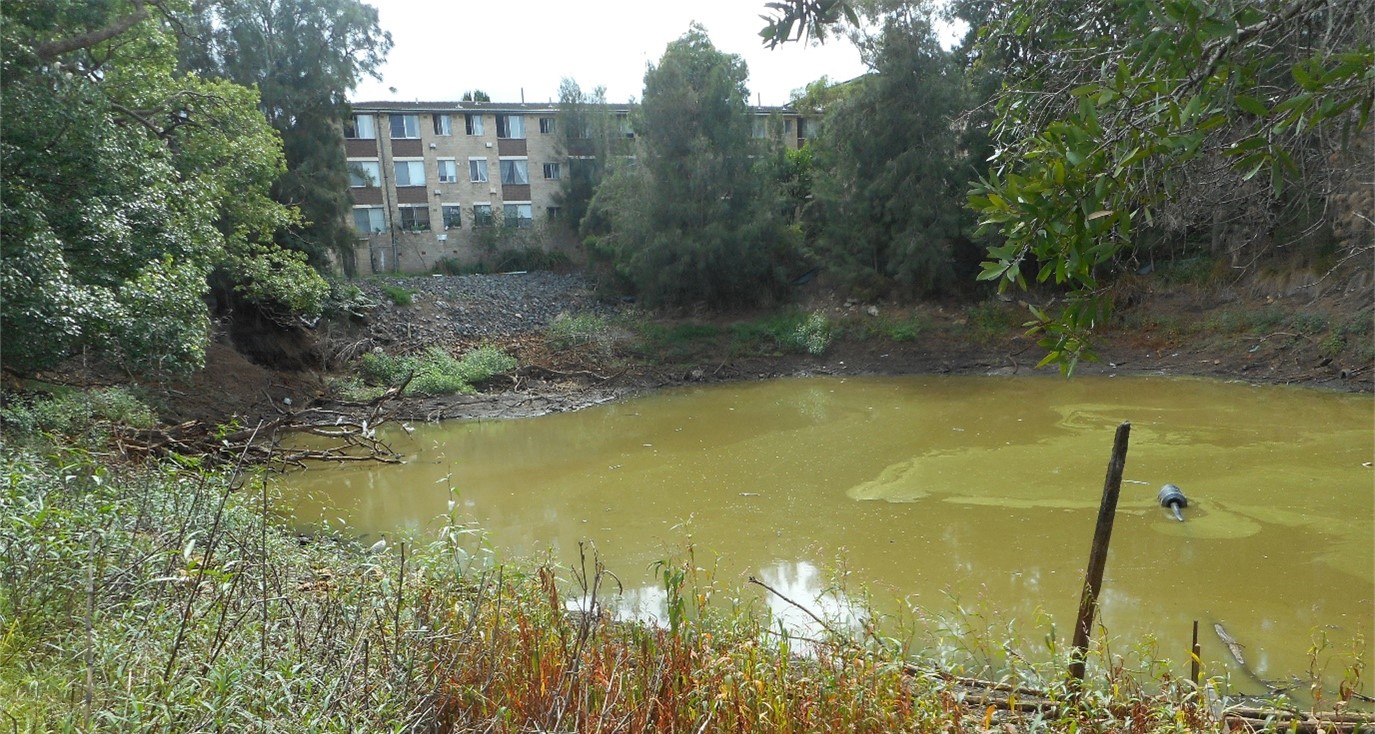
The waterhole before stabilisation
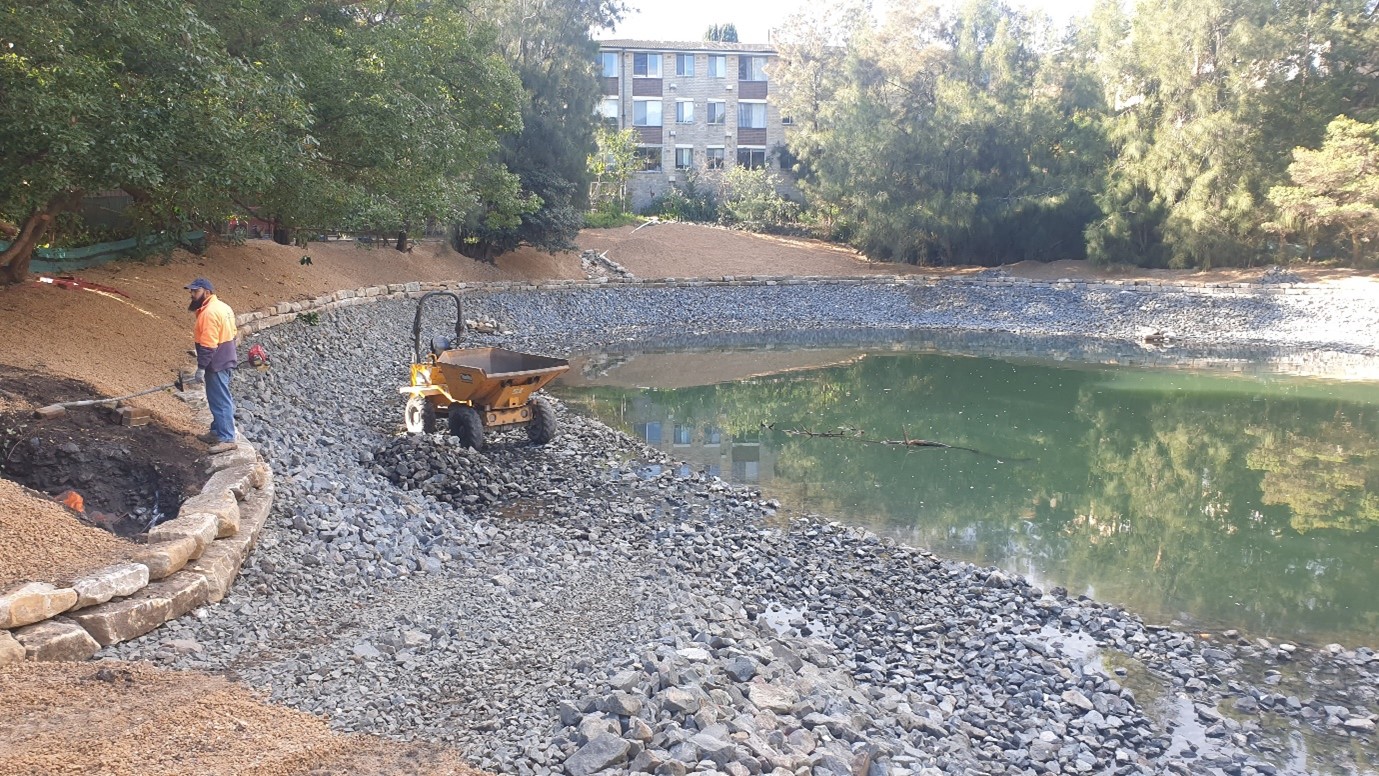
Reclaimed sandstone edging installed
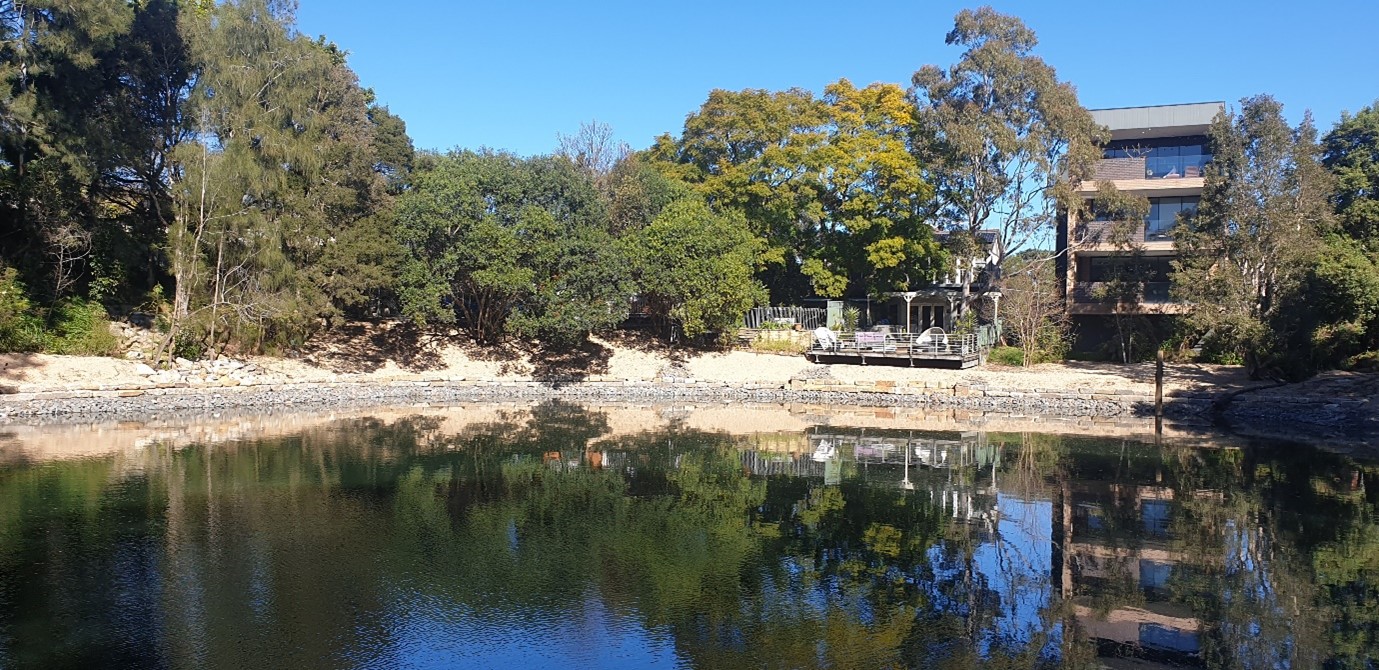
The finished project
Most glass that you put in your recycling bin is separated by colour, then melted down in furnaces and re-made into new glass. But some glass is smashed into small pieces in the recycling process and can’t be easily separated into colours. This glass stream has always been difficult to reuse and often has to be sent to the tip. Councils and recycling companies have been looking for uses for this smashed glass to reduce waste and costs.
We know that crushed glass has potential to replace natural sand in asphalt and concrete used by Council to lay road and footpaths. However for some time it has been difficult to source recycled glass that also meets established road specifications. Recycled glass needs to be cleaned and processed before it can be used in roads. Recyclers need to set up processing plants to achieve this – and before they can invest in these, they need to know they have a strong customer base.
To encourage the market and close the loop on this important resource, Inner West has joined 15 other Councils to ask suppliers to include recycled crushed glass in their products. This group has a lot of buying power and has the ability to create a strong market.
Through our regional organisation (the Southern Sydney Region of Councils, SSROC), the buying group established a panel of suppliers who provide products and services using Recycled Crushed Glass. This has made it easier for Council to find suitable recycled crushed glass. This has been very successful and Council now used recycled crushed glass when resurfacing roads. Keep an eye out in your local area - your local road may contain some of your old glass bottles!
Although on hold due to COVID-19, Council usually runs large scale community events and street festivals throughout the year.
These events have the potential to generate lots of waste and litter!
Council has been working with event stallholders to reduce waste, especially single-use plastics such as plastic bags, soft-drink bottles, balloons, plastic straws, plates and cutlery.
These items take a lot of resources to make and are often used for only a few minutes before they are sent to the tip. They can also be difficult to recycle.
Council’s events are now largely free of single-use plastic. Event-goers are offered alternatives such as cardboard plates, cornstarch cutlery and aluminium cans.
The exception is plastic water bottles which are an essential safety requirement at events. You can help reduce plastic bottles by bringing your own reusable container. Council is encouraging reusable bottles by providing water stations, especially at larger events.
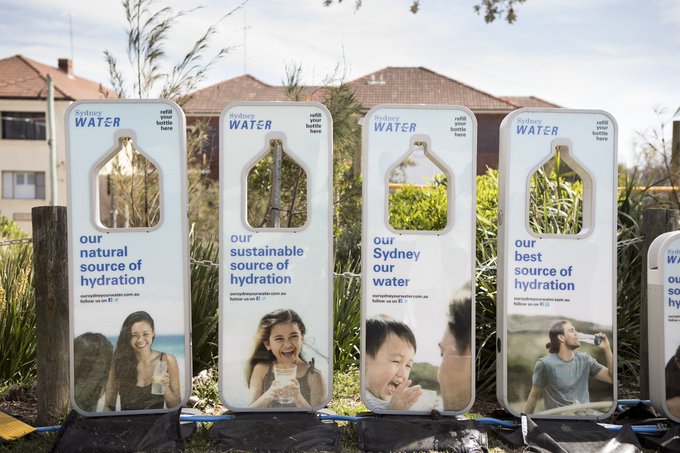
Stallholders can check event requirements on plastics here:
Coffee cups are not usually recyclable as they are lined with plastic to contain the drink.
The coffee carts at Council’s community events are very popular so we have been looking at ways to reduce this waste stream.
We’ve now introduced reusable cups to keen coffee-drinkers at several pre-COVID events. As reusable cups are an adjustment for both event-goers and stallholders, these were treated as trials and were monitored to assess benefits and challenges.
At Council’s annual Footprints Eco Festival in 2018, we first partnered with reusable cup provider Ruzi and event stallholders to trial reusable coffee cups, avoiding the use of hundreds of single-use cups and lids.
Feedback was positive, and we expanded into reusable cups for other drinks at the Marrickville Festival and Summer Hill Festival (2019). A total of 4,000 custom reusable cups from Better Cup were used in the bar areas at these events in place of single use cups. Thousands of single use cups were avoided.
Once events recommence we expect to continue the trials. So far, we found that the reusable cups are popular but require a bit of prompting to encourage people to use them. We also lost some cups into the general waste and will work on ways of reducing losses.
Most offices recycle and compost these days, and Council does too.
Many of our offices have on-site composting. Staff put kitchen scraps and tea bags into a caddy, and a small team of volunteers transfers it to the composting bins and keeps an eye on the composting process. Staff can then take home the finished compost to use on their gardens.
Composting stops food from going to landfill, where it generates a powerful greenhouse gas (methane) when it breaks down in the absence of oxygen.
Council also recycles waste paper, cardboard, metals and plastics. We close the loop by purchasing 100% recycled office paper for our offices and community facilities.
In 2018, Council resolved to take a hard look at single-use plastic in our own operations. We reviewed offices and depots to look at whether we could eliminate items such as plastic bags, single-use plastic drink bottles, balloons, plastic straws, plates and cutlery. We found that there were plenty of items that we could change quite simply, such as:
- Plastic utensils, cups and plates were replaced with crockery and metal utensils
- Water jugs and water glasses were provided to reduce plastic water bottles
- Single-use packaging was reduced by replacing sachets (e.g. for sugar, coffee) with bulk goods in containers
- Caterers were asked to eliminate single-use plastics except where health and safety requirements apply
We are also reducing waste at other facilities – for example the Library staff have been working with suppliers to:
- Return old books to suppliers for credit and resale/recycling (depending on condition)
- Package goods in starch peanuts or scrunched paper (avoiding expanded polystyrene)
- Recycle magazines, cardboard, DVD/CD cases and soft plastic
As part of our community waste service, Council provides tens of thousands of wheelie bins to Inner West residents.
We receive hundreds of requests each week to replace old or broken bins, which adds up to a lot of old plastic.
Council arranges collection and recycling of these bins with TekFlow.
When your wheelie bin breaks or reaches end of life, it is recycled into new plastic products, including new wheelie bins.
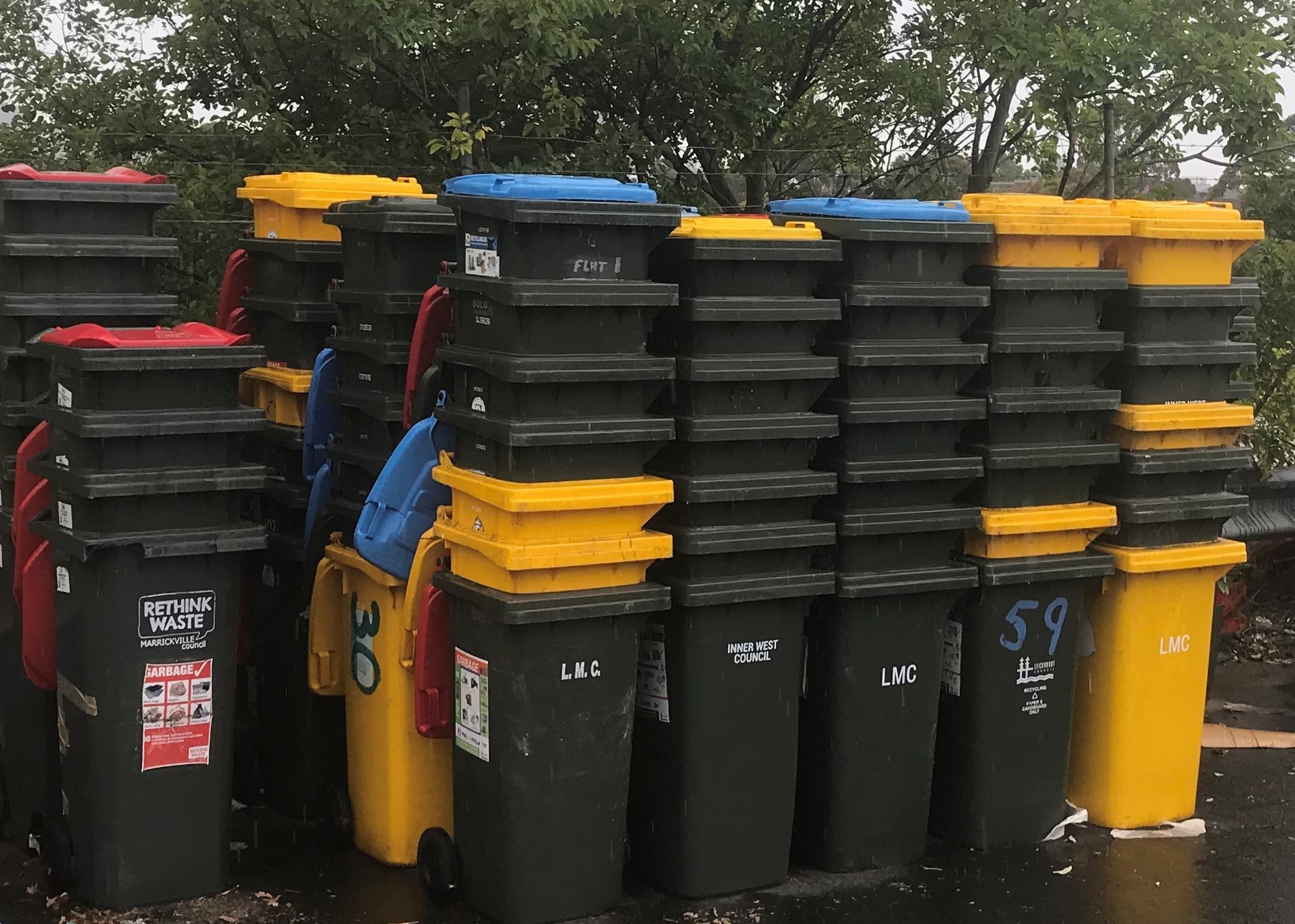
To report a damaged or broken bin, go to Council's waste and recycling requests here:
Request a service